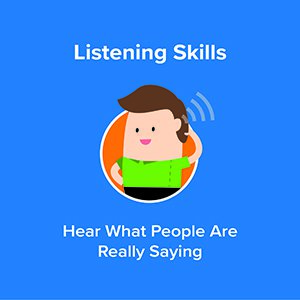
Don’t talk about it. Perhaps it’s human to avoid and deny addressing important topics. I do know after forty years working with families, relationships and marriages, we Americans are not disposed to talking about the “its”. The “its” are the elephants in the room. The “its” are those topics about which we have strong feelings. Yes, we avoid discussing the things we really need to talk about.
You may think you are protecting those you love by diverting conversations from hot topics in your life to those meaningless and superficial topics such as the weather, sports, or the kid’s school issues.
Great. All I can say is, “How is that working for the quality of relationships in American families and marriage in particular? From where I sit, not too well.
Women can feel emotionally alone and men may feel unfairly blamed by angry women. “Why is my wife always angry at me?” I hear often. Just as often, I hear, “Why is my husband so cold and emotionally unavailable?” It becomes a cold and lonely stand-off for everybody.
But wait. I don’t mean to be harsh or accusatory. You and you partner are not bad people. That’s not the reason you don’t speak of things painful or otherwise important. It’s because you can’t. The reason you can’t is because you don’t know how! In all likelihood, neither does your partner.
The patterns of thought and interpersonal behavior you have been taught by your culture do not include the skills and encouragement to deal with the “it’s”. We all swim in the same cultural waters that have socialized us to:
- Avoid discussing the really impactful things in life or things that are thought to be dark and painful/embarrassing.
- We are not taught the skills necessary for emotionally intelligent conversation. Why? Because most people we grew up with were not taught those skills sets either, generation after generation.
However, that business of “Don’t Talk” is just the beginning.
If you can’t discuss openly and honestly with another person what is going on with you at your deepest feeling core (and neither can the other person with you), that leads to everyone involved assuming those feeling are not valuable and they should be cast aside.
What good are feelings you can’t discuss and may also question whether or not you should even be having them? Despite the fact you were taught as a young child not to feel your feelings, that is really not possible, not to have feelings. You can pretend to not have them and ignore them and not talk about them, especially the troubling, negative ones like anger, fear or confusion. But they don’t go away. Instead, you bury them, suppress them, deny them and then act out, develop addictions or other mental/physical health issues.
Claudia Black in her work explores how these two dysfunctional rules, Don’t Talk and Don’t Feel result in the most divisive and isolating rule of all which adds to the crux of substance abuse: Don’t Trust.
Don’t Trust yourself and certainly don’t trust your neighbor. How can you have meaningful intimate interaction with another human being if you do not trust them to handle your vulnerability with care and tenderness? Intimacy is not possible without a safe place or relationship in which to “undress” and expose vulnerabilities?
Dr. Black goes on to point out how these rules of emotional living act as defenses. From early on, American children who adopt these rules face significant challenges about how to speak honestly about their inner feelings, develop a healthy, emotional intelligence and learn to trust themselves and others.
If the grown-ups in a child’s life are following the “Don’t Talk, Don’t Feel, Don’t Trust” schema, how are children able to learn otherwise? They don’t and on and on we go, perpetuating needless emotional and relationship isolation and misery.
It’s Okay To Talk About Joan. She Is Dead.
The Don’t Talk dictum in American society is epitomized in an article written by Kenneth Haugk. His wife had died and he struggled in the aftermath. Out of his own discovery about how to handle grief, one of the most difficult topics to allow ourselves to feel and talk about, he writes this:
“Right up there with the myths that the world is flat or that the moon is made of green cheese lies the one that says you shouldn’t talk about someone who has died for fear of hurting those who are grieving. One of the greatest gifts you can give someone who’s grieving is easy, natural reminiscing about the person who has died. Many people view the grieving process as a wound scabbing over, and believe that raising memories is like picking the scab, slowing recovery. It couldn’t be further from the truth. I can say this based not only on my own experience, but on that of many scores of people I’ve talked to.”
 Kenneth Haugk is the founder and executive director of Stephen Ministries and author of numerous books, including Journeying through Grief and Don’t Sing Songs to a Heavy Heart: How to Relate to Those Who Are Suffering. The Stephen Ministries is a non-denominational congregational based program which brings people together to talk and discuss difficult issues in their lives, including the loss of loved ones and other transitional challenges in life. This program is definitely breaking the three rules of emotional isolation.
Kenneth Haugk is the founder and executive director of Stephen Ministries and author of numerous books, including Journeying through Grief and Don’t Sing Songs to a Heavy Heart: How to Relate to Those Who Are Suffering. The Stephen Ministries is a non-denominational congregational based program which brings people together to talk and discuss difficult issues in their lives, including the loss of loved ones and other transitional challenges in life. This program is definitely breaking the three rules of emotional isolation.
What Can You Do For Yourself In a “Don’t Talk About It” World?
- Be a pioneer
Nothing changes if nothing changes. Be willing to take a risk at breaking the rules. Often simply a willingness to do something differently will bring to you the needed guidance and support for the next step. And change is best done step by step. - Take some lessons
Seek out a coach, a sponsor, a counselor, a teacher, a Stephen Minister, etc. We learn from others. That other person, of course, needs to be a bit more advanced and skilled in the thing you want to learn; otherwise it’s the blind leading the blind. - Grab hold of a talk partner and practice
Be on the lookout for at least one other person who is also willing to break the rules with you, who needs to practice the new ways of being open and honest and who is open to building trust. Sometimes this is a partner or spouse. Can be a friend or other person you meet in the context of being coached - Model for your children (the young generation in general) how to break the three rules of relationship dysfunction
For example: When picking up you child from school, rather than immediately asking, “How was your day? Anything going on at school?” begin by sharing a little bit about your day, and some of your feelings about something in particular that happened. Then you can invite them to share about their day, if they want to. No pressure.
When showing you their grades, ask your young person to say how they feel about their grades before giving them your feelings. Anyway, how you feel about their grades doesn’t really matter, but their thoughts and feelings do matter, a great deal. Validate that with your child and thank them for sharing.
- Become a good listener, which automatically makes it more difficult for others to not discuss their pain.
In fact, people will seek you out. We all need to be listened to and heard. Learn the simple skill of Active Listening. When you use this technique, you will be breaking many rules.
- Use good discernment and judgment about who you talk to about what.
Everyone you know may not be comfortable listening to you and hearing about your feelings. It may be too threatening to some for you to break these rules with them.
Take care of yourself. Paul W Anderson, PhD can help you be mindful of the importance of a trusting relationship that enables you and others you care about to safely break the “Don’t talk about it” rule and live to tell about it.





